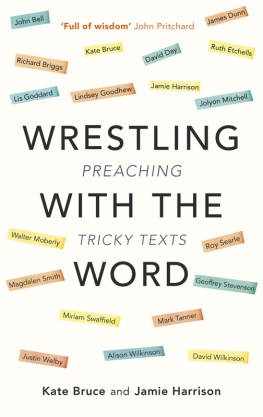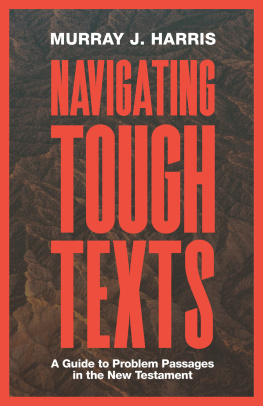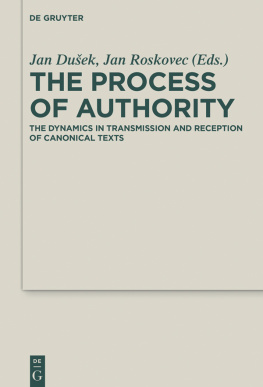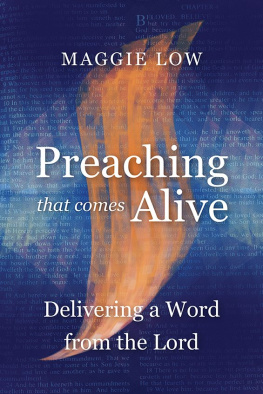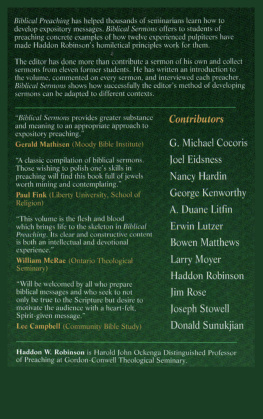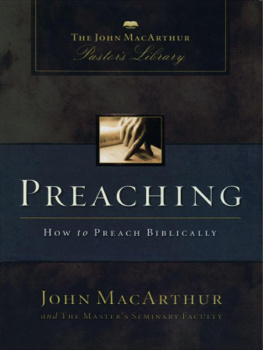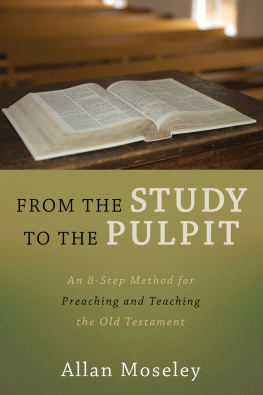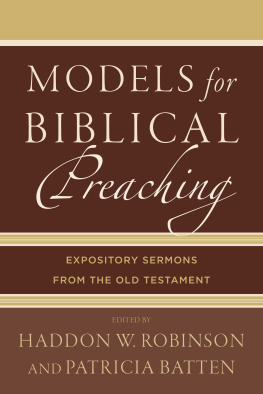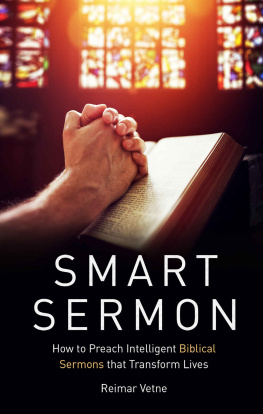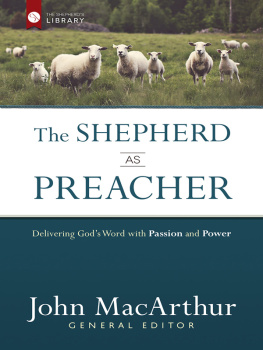Kate Bruce is Deputy Warden and Tutor in Homiletics at Cranmer Hall, Durham. She is also Fellow in Preaching at CODEC () a research centre focusing on engaging faith in digital culture. Kate runs the Durham Preaching Conference and teaches preaching around the UK, working with clergy, Readers and young preachers. She is an experienced and sought-after preacher. Her published works include Lent courses: Life Source (2006), Life Calling (2007), co-authored with Robert Warren, and Igniting the Heart: Preaching and imagination (2015). She is particularly interested in the relationship between preaching and stand-up comedy, and performs stand-up as Woman of the Cloth.
Jamie Harrison is a Reader at St Nicholas Durham, Chair of the House of Laity in the Church of Englands General Synod, and a member of the Clergy Discipline Commission. A former GP Adviser to the Department of Health, he is Fellow in Healthcare and Religion at St Johns College, Durham University. He has published widely on issues of vocation (Grove Monograph), medical careers and the NHS, receiving the Baxter Award from the European Health Management Association in 2000 for Clinical Governance in Primary Care . With Bishop Robert Innes, he recently edited the book Clergy in a Complex Age: Responses to the Guidelines for the professional conduct of the clergy (SPCK, 2016).
First published in Great Britain in 2016
Society for Promoting Christian Knowledge
36 Causton Street
London SW1P 4ST
www.spck.org.uk
Copyright Kate Bruce and Jamie Harrison 2016
The authors of the individual chapters included in this work have asserted their right under the Copyright, Designs and Patents Act, 1988, to be identified as such.
All rights reserved. No part of this book may be reproduced or transmitted in any form or by any means, electronic or mechanical, including photocopying, recording, or by any information storage and retrieval system, without permission in writing from the publisher.
SPCK does not necessarily endorse the individual views contained in its publications.
Scripture quotations are taken from the New Revised Standard Version of the Bible, Anglicized Edition, copyright 1989, 1995 by the Division of Christian Education of the National Council of the Churches of Christ in the USA. Used by permission. All rights reserved.
The publisher and authors acknowledge with thanks permission to reproduce copyright material in this book. Every effort has been made to seek permission to use copyright material. The publisher apologizes for those cases where permission might not have been sought and, if notified, will formally seek permission at the earliest opportunity.
British Library Cataloguing-in-Publication Data
A catalogue record for this book is available from the British Library
ISBN 9780281076482
eBook ISBN 9780281076499
eBook by Graphicraft Limited, Hong Kong
This book is dedicated to David Day (born 11 August 1936) and to the Readers of the Church of England, who celebrate their 150th anniversary in 2016
Contents
10 From tricky text to lifestyle change:
the debate about application David Day
John Bell is a member of the Iona Community.
Richard Briggs is Lecturer in Old Testament and Director of Biblical Studies at Cranmer Hall, Durham.
Kate Bruce is Deputy Warden and Tutor in Homiletics at Cranmer Hall, Durham.
David Day is a former Principal of St Johns College, Durham.
James Dunn is Emeritus Lightfoot Professor of Divinity at Durham University.
Ruth Etchells (19312012) was Principal of St Johns College, Durham, 197988.
Lis Goddard is Vicar of St James the Less Westminster.
Lindsey Goodhew is Honorary Curate of St Nicholas Durham.
Jamie Harrison is a Reader at St Nicholas Durham.
Jolyon Mitchell has a personal Chair in Communication, Arts and Religion at Edinburgh University.
Walter Moberly is Professor of Theology and Biblical Interpretation at Durham University.
John Pritchard is a former Bishop of Oxford.
Roy Searle is one of the leaders of the Northumbria Community.
Magdalen Smith is Director of Ordinands for Chester Diocese.
Geoffrey Stevenson is an Honorary Fellow at the School of Divinity, Edinburgh University.
Miriam Swaffield is the Student Mission Leader for Fusion and a postgraduate at Cranmer Hall, Durham.
Mark Tanner is Bishop of Berwick.
Justin Welby is Archbishop of Canterbury.
Alison Wilkinson is a Methodist minister in Newcastle.
David Wilkinson is Principal of St Johns College, Durham.
Its fashionable to say that preaching is going out of fashion. The era of public lectures or long speeches at political rallies is past, they say. Listen to the 2-minute, 45-second pieces on the Today programme on Radio 4. If you cant say it in two sentences youll be interrupted; if you try to develop an argument youll be cut off. Social media is where the action is and the idea of a 10-, 20- or even 30-minute monologue is simply impossible, so last century. That is, until you hear a really good preacher.
Theres a story (probably apocryphal) about the sceptical eighteenth-century philosopher David Hume hurrying down a road when hes met by a friend. Cant stop, says Hume, Im off to hear George Whitfield preach. But you dont believe a word of it, replied his friend in astonishment. No, came the response, but Whitfield does.
When a preacher speaks with passion about matters of burning importance and genuine personal significance, the preacher will get a hearing in any age. Indeed, there are few times and places in society now where listeners are lifted up and reminded of their capacity for the infinite, and a well-constructed and well-delivered sermon has the potential to inspire people as few other experiences can.
Nevertheless, preachers can be undermined by the current scepticism both about sermons and about their subject, the good news about God. If preachers get to the stage where they feel they have to say something, rather than that they have something to say, a rather critical line has been crossed. Or if the preacher seems to be a mild-mannered person speaking to mild-mannered people in a mild-mannered way about mild-mannered things it wont be surprising if the congregation focus on the number of panes in the east window or the number of shopping days to Christmas. Its not just Whitfield who needed to feel passionate about what he had to say; all of us called to preach in any age need to feel the same. These are wonderful and weighty matters of which we speak and I have long treasured the words attributed to Thomas Carlyle: Who, having been called to be a preacher, would stoop to be a king?
The corollary, however, is that preaching is a tough task. It wont do to wander into the pulpit simply saying the Holy Spirit will inspire us. As every first-time preacher discovers, the Holy Spirit is a joint partner in this start-up company; we both have to work at it. We need to ask very basic questions, like: What is our sermon for? What is it trying to say? (If we cant summarize the message in two sentences at the top of the page it wont be surprising if our listeners cant do it either.) Who is it for, that is, whats the make-up of this congregation, on this day, in this context? We need to ask how it proposes to engage the congregation and what it is intended to do for them. A sermon isnt an exercise in intellectual bravado; its not an essay, a lecture, an exhortation, a counselling session, a testimony. Its a declaration of the good news for these good people at this particular time and place. Its summed up for me in the prayer with which I usually open a sermon: Gracious God, may these spoken words be faithful to the written words and lead us to the living Word, Jesus Christ our Lord, Amen.

